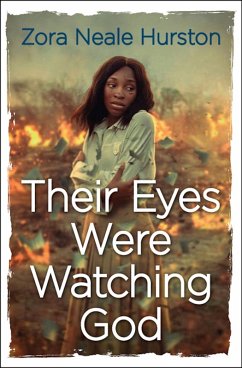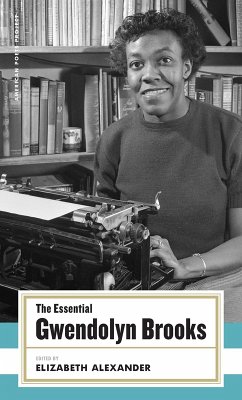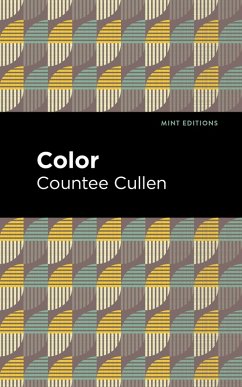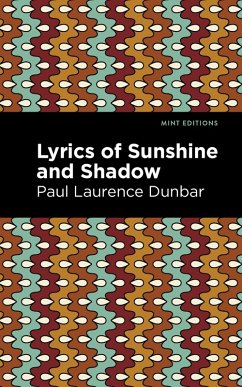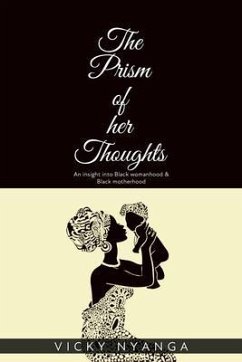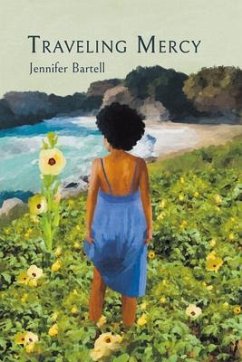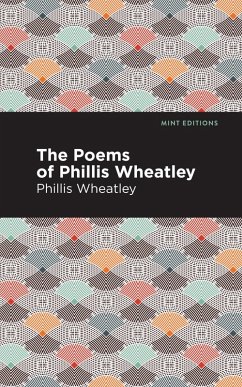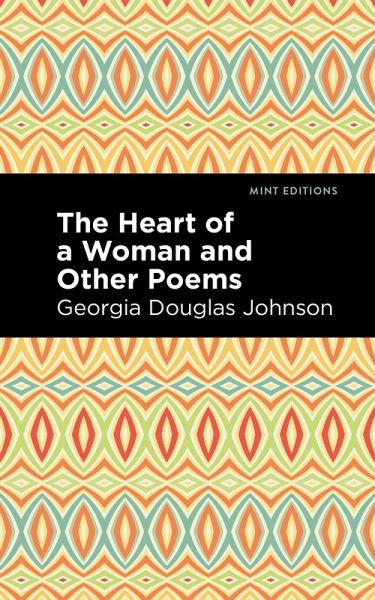
The Heart of a Woman and Other Poems (eBook, ePUB)
Versandkostenfrei!
Sofort per Download lieferbar
3,99 €
inkl. MwSt.
Weitere Ausgaben:

PAYBACK Punkte
2 °P sammeln!
The Heart of a Woman and Other Poems (1918) is a collection of poetry by Georgia Douglas Johnson. Marking Johnson's debut as one of the leading poets of the Harlem Renaissance, The Heart of a Woman and Other Poems is an invaluable work of African American literature for scholars and poetry enthusiasts alike. Comprised of Johnson's earliest works as a poet, the collection showcases her sense of the musicality of language while illuminating the experiences of African American women of the early twentieth century. "The heart of a woman goes forth with the dawn, / As a lone bird, soft winging, so ...
The Heart of a Woman and Other Poems (1918) is a collection of poetry by Georgia Douglas Johnson. Marking Johnson's debut as one of the leading poets of the Harlem Renaissance, The Heart of a Woman and Other Poems is an invaluable work of African American literature for scholars and poetry enthusiasts alike. Comprised of Johnson's earliest works as a poet, the collection showcases her sense of the musicality of language while illuminating the experiences of African American women of the early twentieth century. "The heart of a woman goes forth with the dawn, / As a lone bird, soft winging, so restlessly on." Recalling Paul Laurence Dunbar's classic poem "Sympathy," which immortalizes the African American experience with the line "I know why the caged bird sings," the title poem of Johnson's collection compares the heart to a bird. Musical and dreamlike, Johnson's poem envisions "the heart of a woman" as it "enters some alien cage in its plight, / And tries to forget it has dreamed of the stars / While it breaks, breaks, breaks on the sheltering bars." With each repetition of "breaks," the reader can feel the restlessness and fear of the bird as it beats its wings against its cage, the heart as it beats against the "sheltering bars" of the ribs. In this poem, and throughout the collection, Johnson shows an efficiency with language uncommon to many poets, let alone one making her debut. This edition of Georgia Douglas Johnson's The Heart of a Woman and Other Poems is a classic of African American literature reimagined for modern readers.
Since our inception in 2020, Mint Editions has kept sustainability and innovation at the forefront of our mission. Each and every Mint Edition title gets a fresh, professionally typeset manuscript and a dazzling new cover, all while maintaining the integrity of the original book.
With thousands of titles in our collection, we aim to spotlight diverse public domain works to help them find modern audiences. Mint Editions celebrates a breadth of literary works, curated from both canonical and overlooked classics from writers around the globe.
Since our inception in 2020, Mint Editions has kept sustainability and innovation at the forefront of our mission. Each and every Mint Edition title gets a fresh, professionally typeset manuscript and a dazzling new cover, all while maintaining the integrity of the original book.
With thousands of titles in our collection, we aim to spotlight diverse public domain works to help them find modern audiences. Mint Editions celebrates a breadth of literary works, curated from both canonical and overlooked classics from writers around the globe.
Dieser Download kann aus rechtlichen Gründen nur mit Rechnungsadresse in A, D ausgeliefert werden.




